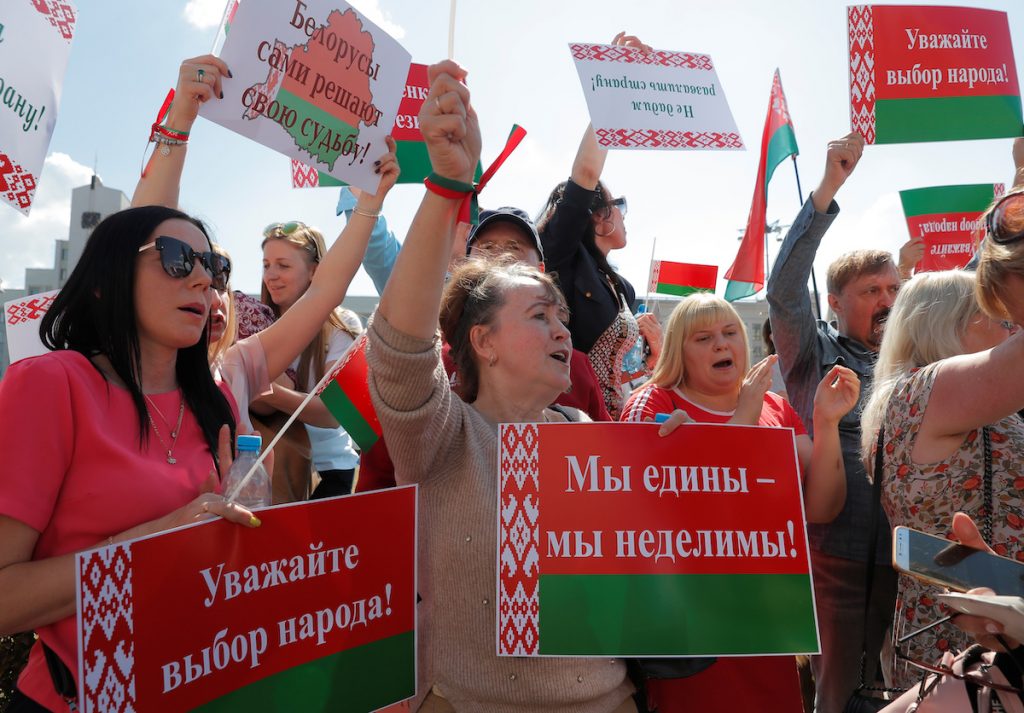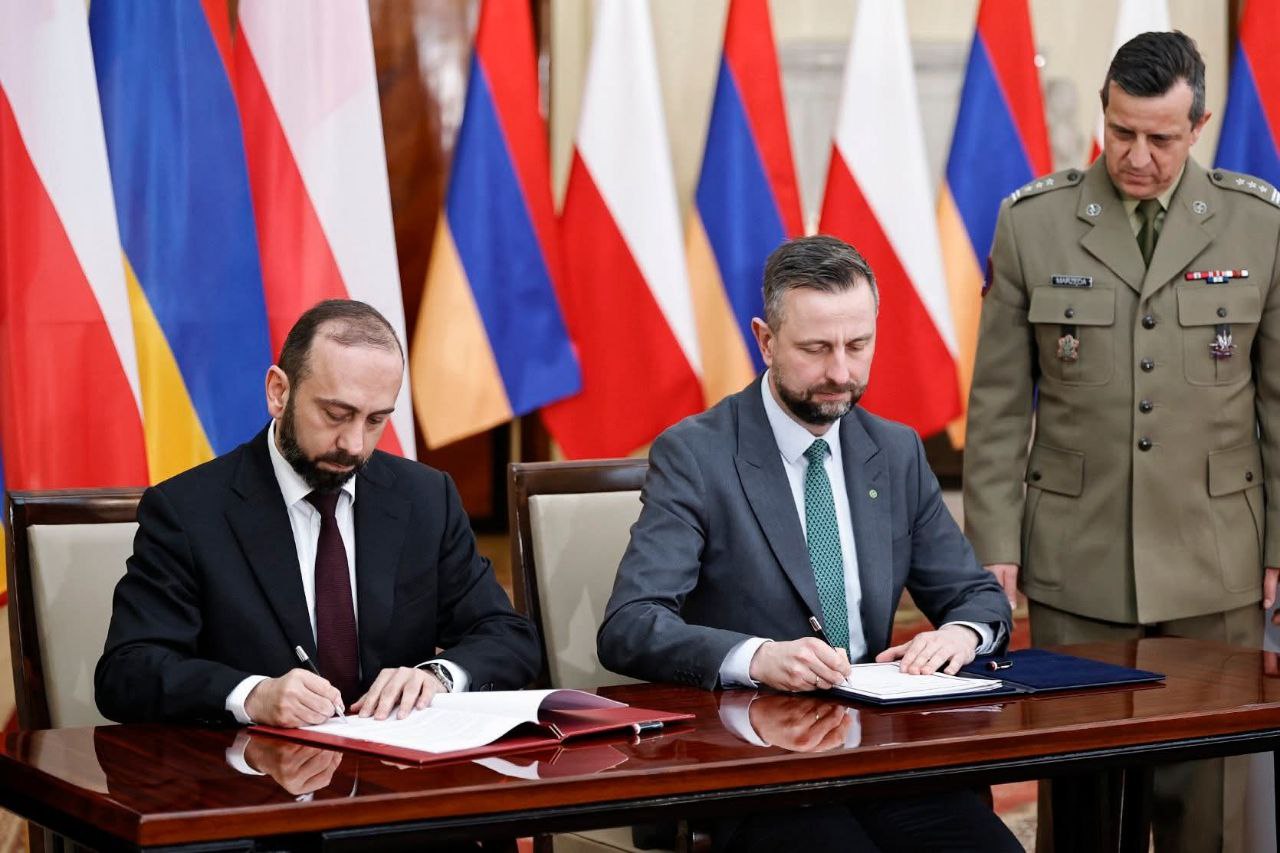Belarus protests fueled by Telegram channel Nexta – what is it, how does it work?
This is the story of the unique telegram channel Nexta Live, which has become the main source of information for residents of Belarus and many abroad during the first days of the mass protests against the contested presidential election on 9 August, 2020.

Criminal proceedings were instituted against the 22-year-old founder of the channel, Stepan Svetlov, known as Putilo, on 14 August.
He faces up to 15 years in prison “for organising protests and calling for the overthrow of the government”.
• More people on the streets in Belarus, less violence. What will come after Lukashenko
• Belarus: horrific evidence of torture and beating of protesters, general strike begins
The channel sends out hundreds of messages a day. More often than not these are short videos from various places in the country, with a short description of local events.
The authors of these videos are local inhabitants who often end up working for the channel.
Nexta’s audience was about 300,000 people at the beginning of August, 2020. It is cresting 2 million people at the time of this publication. For Belarus, with its population of 10 million, that is an unbelievably wide audience.
The Telegram channel has also started spontaneously coordinating protests, informing participants of where special forces are concentrated and where protesters should direct their efforts.
Journalists and editors in Belarus and abroad point out that Nexta does no fact-checking of the information it publishes, and so is vulnerable to perpetuating disinformation.
How many people are on Nexta Live’s team? Where do they get their information? Who are their financial backers? What follows are the answers to these questions.
“Just two 22-year-olds” Who’s behind Nexta?

Nexta is pronounced “nekhta” and means “someone” in Belarusian.
It was originally a YouTube channel, which was created in 2015 by the 17-year-old high school student Stepan Svetlov, better known as Putilo.
“I just felt a desire to collect all the trash coming out of Lukashenko’s Belarus”, he said.
He began to assemble a weekly collection of news as well as he could on his own. The channel met a demand, receiving tens of thousands of views at first, then millions.
At some point Stepan became interested in intelligence and espionage, traveling to Katowice, Poland to study the topic.
Once he decided to come back to Belarus to see his family. That was in February 2018, when his apartment was suddenly searched. After that he has never returned to Belarus and has practically no desire to do so.
How the channel works
Nexta is in the global top 10 of all channels by number of subscribers. Even if, as Putilo himself believes, only about 70% of the subscribers are from Belarus, that still means that 15 percent of all the citizens of the country are watching the channel.
You can literally see, live, on the channel, what is happening in real time. How fleeing protesters are chased, how they lie in wait for the siloviks (military politicians), how they whistle from the balconies and pelt the police with whatever is at hand.
“Every day, dozens of people write me from all walks of life, from border guards to shop clerks”, said Stepan Putilo in an interview with the Belarusian publication Tut.by.
Putilo and his potential sources can act as they do because he lives outside of Belarus.
According to Putilo, it’s already a small corporation, comprising the channel Nexta Live, the YouTube channel, and a few other channels on Telegram. They are run by only four people.
Roman Protasevich is the 25-year-old chief editor of all of Nexta’s work. He, like Putilo, lives in Poland. He joined Nexta at the beginning of 2020, when Putilo decided to make “proper media with editing”.
“Before the beginning of the elections, a normal day would mean we got about a thousand messages. Now we get 180 to 250 per minute. At peak times during the protests, we get up to 10 thousand messages an hour”, said Protasevich.
On the day of the elections for the President of Belarus and during the initial days of the protests, the internet was practically turned off entirely throughout the country. Inhabitants were left with two choices. They could either watch the state television channels or use Telegram, which the government of the country was unable to block.
The messenger app continued working due to an “anti-censorship mechanism”, which the founder of the app, Pavel Durov, tweeted about.
The leader of the protests? “If we don’t, then nobody else will”
Nexta Live quickly transformed from a source of information on the protests into a coordinator of them.
They would inform protesters in real time about which underpasses they could hide from the spetsnaz in, or where the siloviks were coming from.
Dozens of chats were created to coordinate things on a city-district level.
The chats contained pamphlets calling people to strike, ready to be printed. They also gave instructions on how to avoid being shot and how to resist the spetsnaz.
“If we don’t do it, then nobody else will do it.”, Putilo’s colleague, Roman Protasevich, said to explain the transformation.

Who are the financial backers of the free Telegram channel Nexta?
The finances of the channel are not at all clear.
Protasevich told The Bell that Nexta “has never received any grants or investments from third parties or countries”.
Putilo himself said that all costs are covered by advertising. However, there are very few adverts on Nexta Live. In addition, says Putilo, “I have a scholarship from the university”.
The risk of disinformation
Some professional journalists fear that resources like Nexta might be used to disseminate unverified information.
Anna Kaltygina, an employee of the opposition website Tut.by, believes that all information needs to be verified, which Nexta doesn’t do.
She also says that, “media must not concern itself with organising revolutions. That is a different matter entirely”.
Nexta’s chief editor, Roman Protasevich, recognizes that errors sometimes creep into their work.
He is a professional journalist, but he believes that, in moments of crisis, such as that which the populace of Belarus finds itself in, the dissemination of free information must take priority.


















